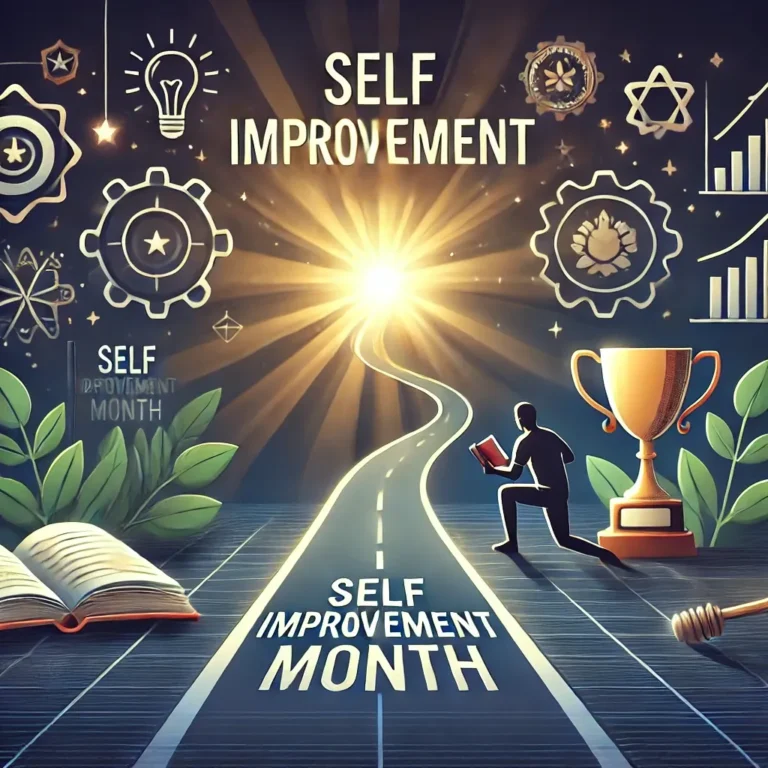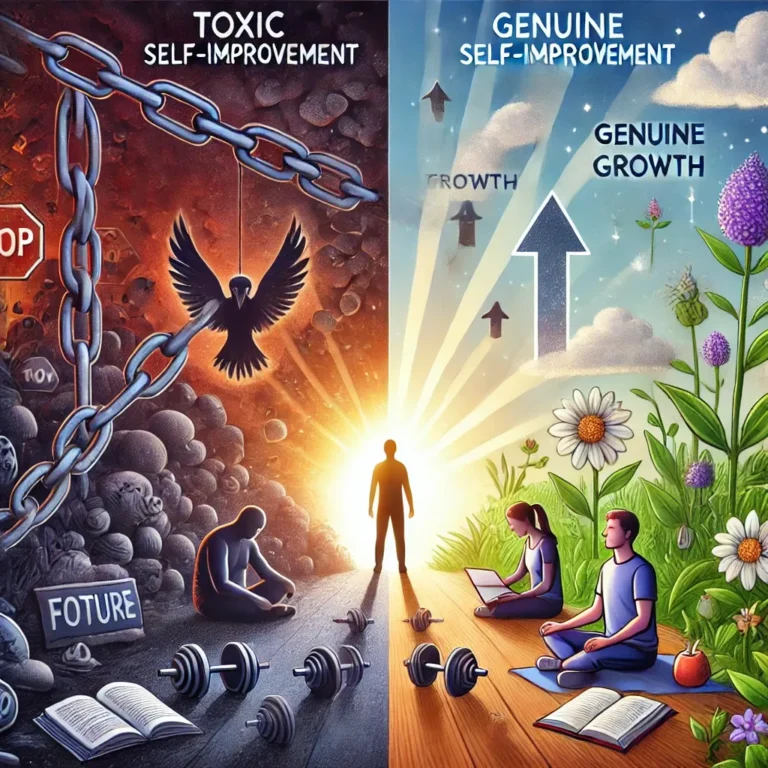Be Better for Yourself: The Ultimate Self-Improvement Plan
Would you like to start taking back control of your life and also become the best YOU there is? The journey to self-discovery is similar to climbing a mountain, difficult but worth it. Yet, in this comprehensive guide, we will show you an ultimate self-improvement plan that helps as if only for yourself; This will include anything from goal setting to creating good habits and remaining in a positive mindset. Begin the transformation with me.
What Is Self-Improvement?
Improvement of oneself is the improvement process by which personal growth and higher quality life mean living at an ideal level, in other words for example own knowledge as well. And making a decision to light up skill development, habits, and mindset behind the trueness of your truest self! Imagine it as an infinite quest where the finish line is a different you perpetually in motion.

Why Self-Improvement Matters
Why bother with self-improvement? In the end, it is clear that investment in self will pay you the best dividends. This is why it is important:
- Greater confidence: You become convinced and sure about your competences, capabilities, and skills in decision-making as you are progressing through it.
- Closer Relationships: Personal development might result in having deeper and authentic relationships with your loved ones.
- Advancing Your Career: Learning new things allows you to build skills and habits that will unlock better opportunities.
- Raised Health: By placing more attention on self-care and growing as an individual, you will notice that your mental health gets better too.
Building the Base: Self-Identity
Before you start on your journey towards self-improvement, it is highly important to know where exactly you are at. In self-improvement, it all starts with being very aware of the self. How you can reconnect to yourself in 3 steps
Reflect on Your Life
Self-Reflection: Draw a Venn diagram of your life. What are you good at and what needs to be improved? What are your interests and passions? One of the ways you can achieve this is through journaling.
Identify Your Core Values
Core values are the principles by which you make all other decisions. Understanding what is truly important to you will enable you to plan your life with real and significant goals that match the beliefs of yourself.
Assess Your Current Situation
Account for where you are right now. In what areas of your life are you satisfied, and in which do you feel inadequate? This will let you know where to concentrate your efforts.
Setting SMART Goals
Goal: A direction and purpose All goals are not created equal though. If you think about it, your goals should be SMART: Specific, Measurable, Attainable (to some extent), Realistic, and Timely.
- Specific: Understand your objectives well. Goals that are too broad, like “be more fit” or “be happy” are difficult to objectively report back on. Instead, goals like “run a 5K race” or “practice gratitude daily.”
- Measurable: This is easy to do with such things as getting in shape or losing weight, just make sure they are sustainable and measurable. Rather than “read more,” commit to “one book per month.”
- Achievable: Give yourself some attainable goals. While ambitious targets are wonderful in theory, they can be frustrating to meet and cause resentment.
- Relevant: Your goals should be in line with your values and long-term visions. Question the value of your goal and how it helps in your overall development.
- Time-bound: Give your goals a deadline. This really helps to give you a deadline and keeps you focused. Such a goal would be “lose 10 pounds in three months.”
Developing Healthy Habits
The thing upon which self-improvement is based on – habits. Below is a guide to creating habits that you can form into the best version of yourself:
- Start Small: Get them to pick out small changes rather than behaviors they are going to completely eliminate. Take baby steps to make them more palatable. For example, if you want to exercise more try with 10 mins of walking each day.
- Be Consistent: Habits are not born overnight and to establish new ones, real consistency is the crucial factor for success. Repeat the same action once per day at a fixed hour. This will help you make it a habit.
- Track Your Progress: Monitor your progression in order to keep yourself motivated. This can be done using a habit tracker app or just ticking off days on your calendar.
- Stay Accountable: Talk to a friend about your goals; join a group of like-minded folks. Accountability is everything which changes with someone holding you accountable for your actions.
Building a Positive Mindset
The way you think has a major impact on your personal growth. However, with a positive attitude, you can surpass it and stay motivated.
- Practice Gratitude: Spend each day thinking about the things you are thankful for. It helps you switch from focusing on what is wrong to enjoying the things that are right in your life.
- Embrace Failure: Every failure is a lesson. Don’t be afraid to fail and make the best of every failed experiment.
- Engage in Positive Environments: Be a part of a positive crowd that backs you and cheers for your victory. Stay away from people who drain your energy.
- Practice Self-Compassion: Especially when things do not go as you planned, be nice to yourself. Everyone makes mistakes, and failure is part of every success story.
Staying Physically Fit
Taking care of your body is an important part of self-improvement. Body Care Tips:
- Eat a Balanced Diet: Eat Nutritious Food to Feed Your Body. Eat a variety of foods, and make sure to get plenty of fruits and vegetables in your diet along with whole grains and lean proteins.
- Stay Active: Staying active is important for your health. Do some form of exercise you enjoy and keep doing it.
- Get Enough Sleep: Proper sleep ensures overall well-being. Try to get 7-9 hours of sleep per night.
- Manage Stress: Here are 4 ways to cope with stress, besides meditation or deep breathing techniques: Spend more time in nature.
Cultivating Mental Health
Mental health is as important as physical health. Mission: Healthy Mind. The following are some ways to keep your mind healthy.
- Practice Mindfulness: Mindfulness is the practice of paying attention to what you are experiencing in that moment without interpretation. It can be a great way to de-stress and increase overall happiness.
- Seek Professional Help: If you need mental health help, please do not hesitate to speak with a professional. Treatment (therapy/counseling) can help.
- Engage in Creative Activities: Painting, writing, or playing music, etc. are creative activities that help one to express and relieve oneself from emotional burden.
- Stay Connected: Social connection is key to mental well-being. Find events to go make new friends and hang out with family.
Life Long Learning and Personal Development
At the very core of becoming better in life is constant learning. Furthering education in the pursuit of new knowledge and skills can motivate you or keep your focus.
- Read Regularly: Reading is a true way to knowledge and mind stimulation. Read more — books, articles, blogs.
- Take Courses: Take some courses and workshops to learn new things. You can subscribe to many online platforms to take courses on a large spectrum of categories.
- Pursue Your Passions: Identify your passions and get creative on how you can chase them. And it is the worst or best thing we can do in our lives, whether that be manial hobbies to an actual legitimate job.
- Set Learning Goals: Have measurable learning objectives that are both specific and attainable; similar to any other goal.
Finance and Physical Health & Wellness
Self-improvement: Financial stability is a component of self-development. If you want to take better control of your money, here are some tips for managing finances.
- Create a Budget: Do a budget: This can help you see where your pay is spent. It will help you with decisions about your finances.
- Save Regularly: Make saving a priority. Little amounts add up in the long run. Practice saving some of your earnings every month.
- Reduce Debt: If you have debt, come up with a plan to pay it off. Pay off high-interest debt before saving for any combinations, refinances.
- Invest Wisely: If possible, think about investing your money to increase its value long-term. Just find out the information and speak to a professional if you have any further questions.
Time Management Skills
Manage your time well. Efficient time management is the key to reaching any goals of self-improvement. Here are 11 strategies to improve your time management skills:
- Prioritize Tasks: Know what they are and get to work. This will allow you to maximize your time.
- Use a Planner: Use a planner to help you keep track of your commitments and stay organized. The first step is selecting an appropriate system (whether it be a physical planner or digital) that will work for you!
- Set Deadlines: Give yourself deadlines for your tasks to make them more urgent and compelling. This is to have you avoid procrastinating.
- Take Breaks: Don’t forget to take breaks. Taking regular breaks, to keep yourself fresh and prevent burnout.
Building Strong Relationships
Real people who fall in love and form healthy relationships are an essential component of a rewarding life. Tips on how to create and keep better relationships:
- Communicate Effectively: Good communication is a foundation of a strong relationship, any kind of it. Share your thoughts in an open, honest, and respectful way.
- Show Appreciation: Make it your business to praise those people in your life. A kind word of thank you, a smile, or something else can be great.
- Be Supportive: Encourage your friends and family who are also on a journey themselves. Be on hand to listen, provide support or say that you are there for them.
- Resolve Conflicts: No matter what, you’re always going to have issues. Tackle conflicts with a framing of resolution and variance.
Repay: The Value of Giving Back
Volunteering and giving back to your community is one of the most fulfilling experiences. Give Back. Here are some ways to help:
- Volunteer: How about some volunteer work to make a good impact? Pick a charity or cause you care about and volunteer.
- Donate: If you can, make a donation to charities or causes that are important to you. Even a small contribution matters.
- Share Your Skills: Enjoy sharing your wisdom with the world. Something you can volunteer your time to help others at is teaching, tutoring, and mentoring.
- Practice Kindness: Kind gestures make the world a better place. Search for instances to be of service in your life on a daily basis.
Embracing Change
Life is all about change, and those who can learn to accept it only set themselves up for growth. How to Roll With Change:
- Stay Open-Minded: It is important to stay for the journey and consider possible alternative opinions or understandings. The same applies to life (by learning swimming, my analogy is very limited).
- Be Flexible: If you want to deal with change, it helps to be able-ish and willing. Flexible around goals and expectations.
- Focus on the Positive: Find the good in change. Even challenging change can be an opportunity and for that matter an adventure.
- Learn from Experience: Think about things that have changed in your life and how you handled it. This will enable you to develop mental strength and self-confidence.
Celebrating Your Successes
If you can learn to appreciate and congratulate yourself for achieving a goal then that is an integral part of the journey in progression. How to Celebrate Your Success:
- Reflect on Your Progress: Only take time to see where you were and how far you have come. Remember the hours and efforts put in by YOU.
- Reward Yourself: That would be your own way of rewarding yourself on that you had done. Even if it is a small reward to yourself, be sure to pat your own back.
- Share Your Success: Share your achievements with family and friends. It feels more gratifying when you have the support and encouragement of others behind your success.
- Keep Moving Forward: Sure, celebrate your wins but they shouldn’t be the end of it. Always push yourself and set new benchmarks to work toward.
Conclusion
Starting down the road to self-improvement is one of the best things you can do for yourself. Set clear goals, develop good habits, keep a positive attitude, and be open to learning all the time – you then can become your best version. Just remind yourself that self-improvement never ends. Accept it with an open heart and mind – find joy in becoming better for yourself.
FAQs
Q: How Long Will It Take For the Changes You Make to Show Results?
A: It totally depends on your goals and the efforts you are putting in. It can take a few months to several years for other changes but you will almost always notice an improvement within many weeks. Consistency is key.
Q: What happens if I don’t succeed at self-improvement?
A: That it fails and that is part of the process. Rather than becoming disheartened, think of it as a lesson. Figure out what happened, change your methods and go at it again.
Q: What helps you maintain motivation on your own self-improvement path?
A: Be specific about what you are trying to do, measure your progress along the way (both qualitatively & quantitatively), celebrate small victories, and seek support through friends/family/community.
Q: Does Self-Development Cure Mental Health Issues?
A: Self-improvement is part of the solution to better mental health, but if it’s a serious issue you should seek professional help. Psychological counseling therapy may be effective.
Q: Can we self-improve ourselves to death?
A: Yeah, it is important to keep a happy medium. Too many of us besiege ourselves with the notion that we must always be working on self-improvement and this mentality can, not only drive us to burnout quickly but it also increases our stress levels. Celebrate the journey and give yourself a break.







